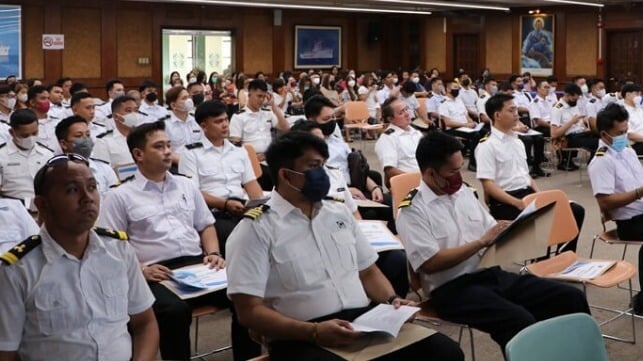EU to Support Philippines for Seafarer Training and Certification

The Government of the Philippines and the European Union announced the launch of the Technical Assistance Project to improve seafarers' training, education, and working conditions in the Philippines. The effort comes less than two years after EU authorities concerned by the training programs had considered imposing a ban that would have stopped the recognition of seafarer credentials from the Philippines.
Over the next three years, the project will support the improvement of the training, certification, and well-being of Filipino seafarers so they can continue working internationally and under good labor conditions. The European Commission has allocated €4 million (US$4.2 million) as part of the larger EU_ASEAN Sustainable Connectivity Package with a total budget of €60 million (US$63 million) to strengthen ties between the EU and ASEAN.
“The European Commission is delighted to support this significant project, further strengthening the Philippines' education, training, and certification system for seafarers, and demonstrating the solid partnership between the Philippines and the European Union,” said Fotini Ioannidou, Director for Waterborne Transport at the European Commission during a signing ceremony on Monday, November 11. “The project will not only bring mutual benefits to both the Philippines and the EU but also contribute positively to the global shipping industry, recognizing Filipino seafarers as a cornerstone of the maritime workforce worldwide."
The European Maritime Safety Agency (EMSA) had long been citing deficiencies in the training protocols in the Philippines before a 2022 report brought the issue to a head. The Philippines used private training programs for its seafarers, but the report criticized the oversight and inconsistencies in the training. With the support of the shipping community, the Philippine government launched a series of initiatives and the EU agreed in 2023 to continue recognition of the credentials.
“We hope to adopt European standards for our training and certification systems while benchmarking [the] best practices among our ASEAN neighbor countries,” said Jaime J. Bautista, Philippine Department of Transportation Secretary. “A law was recently signed – the Magna Carta of Filipino Seafarers – ensuring the protection and benefits of our highly-skilled mariners. We most welcome the assistance of the European Union in strengthening the education, training, and certification of our seafarers who remain the top choice as crew of the global shipping industry.”

that matters most
Get the latest maritime news delivered to your inbox daily.
With approximately 1.15 million seafarers, the Philippines is a leading supplier of maritime talent, providing approximately a quarter of the global seafaring workforce. The shipping sector is also a key pillar of the Philippine economy, making substantial contributions to the country’s Gross Domestic Product. In 2022, the industry directly accounted for four percent of the Philippines’ GDP, with seafarers’ remittances adding another 1.7 percent.
The joint training and certification project launched in September and will continue until November 2027.
